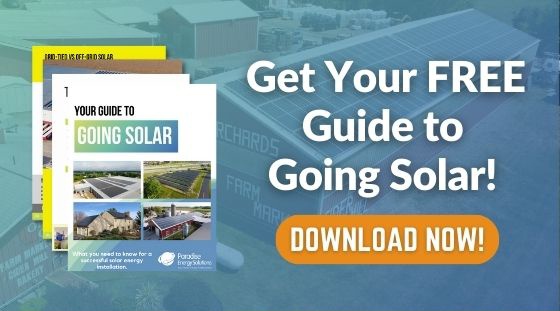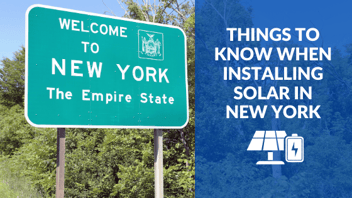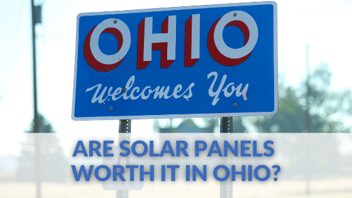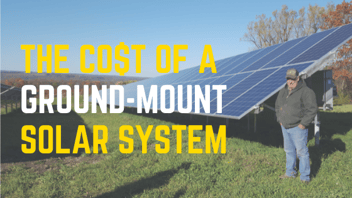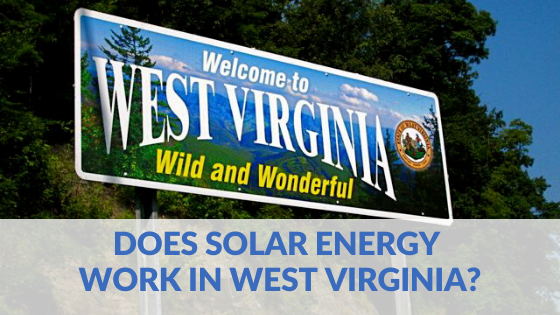
Many businesses, farmers, and homeowners across the US are saving a significant amount of money with solar energy. But those savings opportunities are not uniform across each state.
What does that mean for solar in West Virginia? Are the policies and incentives in place for solar to work WV?
If you’re a resident of West Virginia, chances are good that solar energy will save you money. But is it enough savings to overcome the high installation cost?
There are two main areas to examine to help determine if solar makes sense in your area. The incentives and policies on the state level are one area to focus on. Then it’s important to take a look at your individual property to make sure things line up there.
Below we dive into both to provide you with guidance to help determine if solar would make sense for you.
How do incentives and policies for solar help West Virginia residents?
Government incentives and policies can have a big impact on your solar investment. Take a look below at two of these important areas to see how they impact solar installations in West Virginia.
West Virginia Solar Energy Policies
The current policies in West Virginia are favorable for those who are looking to install solar. Many of the policies that make solar appealing in neighboring states are also available in WV.
Net Metering is a big one. This is the policy that’s in place to make sure you get full credit for any overproduction that your system sends back to the utility company. It’s currently a requirement in West Virginia for all utility companies to offer Net Metering.
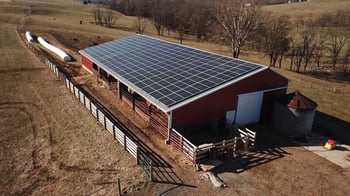 This is key because most of the energy from your system will be produced during the day. You may use a large portion of that production at that time but there is a good chance you’ll also send a portion of your production back to the grid. Using Net Metering, the utility company will give you a one-for-one credit for every kilowatt-hour (kWh) sent back. Then come nighttime when the sun isn’t shining, you’ll pull electricity from the grid and pay for it using the credits you generated when the sun was shining. Without Net Metering your overproduction would go to waste unless you install a battery storage system.
This is key because most of the energy from your system will be produced during the day. You may use a large portion of that production at that time but there is a good chance you’ll also send a portion of your production back to the grid. Using Net Metering, the utility company will give you a one-for-one credit for every kilowatt-hour (kWh) sent back. Then come nighttime when the sun isn’t shining, you’ll pull electricity from the grid and pay for it using the credits you generated when the sun was shining. Without Net Metering your overproduction would go to waste unless you install a battery storage system.
Utility interconnection rules are also favorable in West Virginia. Currently, all systems up to 2 MW are permitted to connect to the utility grid. Their rules are fairly straightforward which makes it easy for systems of all sizes to be connected to the grid. However, you don’t need to worry about the details of these rules. Selecting a reputable, experienced solar installer will allow you to leave these details for them to button up.
Tax Incentives For Solar
There are no state-level tax incentives currently available in WV.
West Virginia solar owners can take advantage of the Federal Solar Tax Credit. This credit is available to anyone who owes federal taxes. In 2022, the credit allows you to take 26% of the system installation cost as a credit to the federal taxes you owe.
Don’t wait to capitalize on this incentive. The credit will drop to 22% in 2023 and then to 10% in 2024 and beyond for commercial systems and go away completely for homeowners.
Does solar make sense at your property?
Take a look at the two sections below to help determine if solar would work for you.
Your electric rate and usage
The residential electric rates in WV are lower than the national average. Although solar will still provide long-term savings, these low rates do make the payback period for homeowners a bit more daunting.
We are finding electric rates to be higher for agricultural and commercial customers. Higher rates make the payback much more appealing for those that fall into this rate classification.
The other contributing factor is the amount of energy you use. Do you have electric heat? Are you running a lot of electric appliances or machines?
The more electricity you use, the better your solar financial return will be. This is even the case if your electric rates are on the low end.
Do you have room for solar panels?
There are two installation methods for solar panels - roof mount and ground mount. While both have pros and cons, selecting the best option for you comes down to how much sunlight is available and your personal preference.
Roof mounts tend to be the cheaper option and they take up space that is otherwise unused.
Some things to consider before selecting a roof mount:
- The age of your roof - we suggest your roof be 10 years old or younger.
- The roof’s orientation - south-facing roofs are optimum, and east and west are good alternatives.
- Shading around the roof - the area should be free of objects that will cast shadows on your panels
- The pitch of your roof - A 35-degree tilt is ideal for most installations, however, ballast mounts can be used on flat roofs to angle panels.
Ground mounts are great options for those who do not have a good roof for solar or just don’t want the panels on their roof. These installations tend to be a little more expensive than roof mounts because of the structure and the additional labor needed.
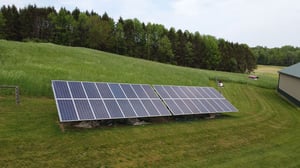
The main advantage of a ground mount is that it can be placed almost anywhere. This means you can pick the sunniest spot (and out of sight if you’re worried about curb appeal).
Check out our deep dive into ground mounts vs roof mounts to learn more about the two options.
The sun might not shine as much in West Virginia as in some southern states, but the drop in installation costs, electric bill reductions, and tax savings make solar energy a great investment for many West Virginia businesses, farmers, and homeowners.

